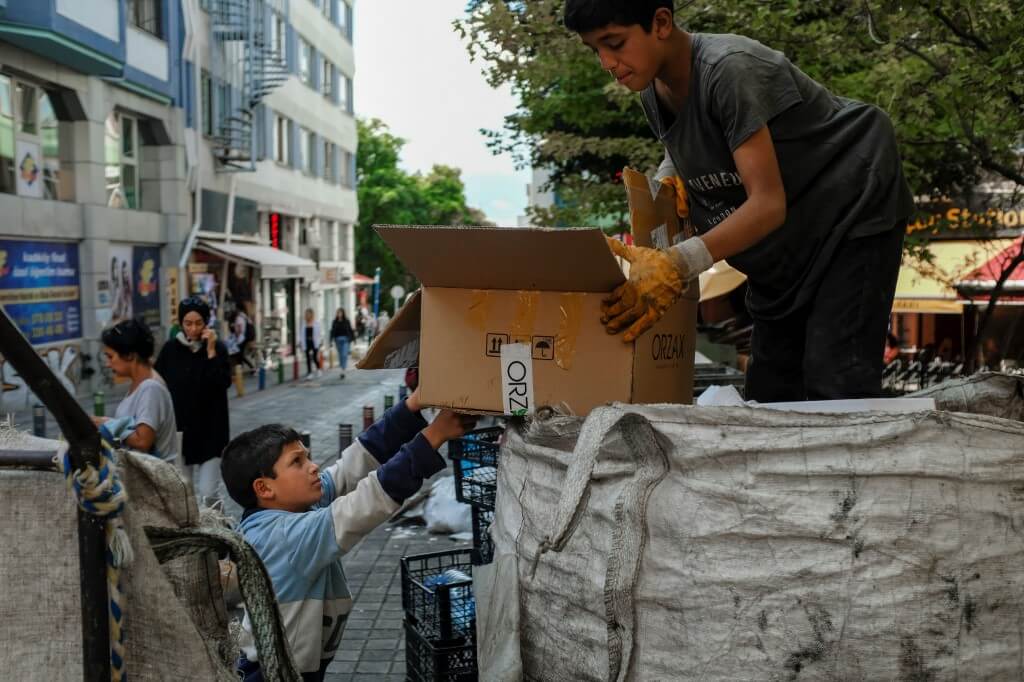There are more than 1.3 million people living in modern slavery in Turkey, which ranks fifth among 151 countries in which modern slavery is the most prevalent, according to the results of the 2023 Global Slavery Index.
The study, which concerns data in 2021, was produced by the Australian-based human rights organization Walk Free and released on Wednesday.
In the index modern slavery is described as covering “a set of specific legal concepts including forced labor, debt bondage, forced marriage, slavery and slavery-like practices, and human trafficking.”
At the top of the list is North Korea, where the prevalence rate of modern slavery is 104. 6 percent, followed by Eritrea, Mauritania, Saudi Arabia and then Turkey, which has a 15.6 percent prevalence rate of modern slavery.
“The countries estimated to have the highest prevalence of modern slavery tend to be conflict-affected, have state-imposed forced labour, and have weak governance,” the index says, adding, “the 10 countries with the highest prevalence of modern slavery have some common characteristics, including ‘limited protections for civil liberties and human rights’.”
The Turkish government is frequently criticized for various human rights violations in the country and limiting freedoms, especially for journalists and government critics.
Turkey remains in the “not free” category with a score of 32/100, in the same category as Russia, China and Iran in the “Freedom in the World 2023” report released in March by the Washington-based Freedom House. The annual report assesses political rights and civil liberties country-by-country.
The study showed exploitative labor practices such as excessive hours, low wages, discrimination and physical and verbal abuse have been reported in garment factories among Bangladeshi migrant workers in Jordan and Syrian refugees in Turkey.
Turkey hosts nearly 3.5 million Syrian refugees who have fled civil war and were registered under temporary protection as of April 2023, according to official figures.
Refugees in Turkey are frequently targeted by Turkish politicians and the public, who hold them responsible for the social and economic problems in the country. They are also seen as a source of cheap labor.
In addition, since more than 40 percent of workers earn the minimum wage amid a skyrocketing cost of living in the country, many people complain about having to work excessive hours or in jobs they are unwilling to work in order to support their families.
Switzerland, Norway, Germany, Netherlands and Sweden are the top five countries where the modern slavery has the lowest rate of prevalence, under 1 percent in the index.
“Modern slavery is hidden in plain sight and is deeply intertwined with life in every corner of the world. Each day, people are tricked, coerced, or forced into exploitative situations that they cannot refuse or leave. Each day, we buy the products or use the services they have been forced to make or offer without realizing the hidden human cost,” the study said.
An estimated 50 million people were living in modern slavery on any given day in 2021, an increase of 10 million people since 2016, when the problem was last measured, the index showed.
The report said G20 countries, made up of the European Union and the world’s 19 top economies, are currently importing $468 billion worth of goods that are at risk of being produced with forced labor, up from $354 billion in the previous 2016 report.
Electronics remain the highest value at-risk product, followed by garments, palm oil and solar panels, in a sign of high demand for renewable energy products.
“Modern slavery permeates every aspect of our society. It is woven through our clothes, lights up our electronics, and seasons our food,” the group’s founding director Grace Forrest said.

